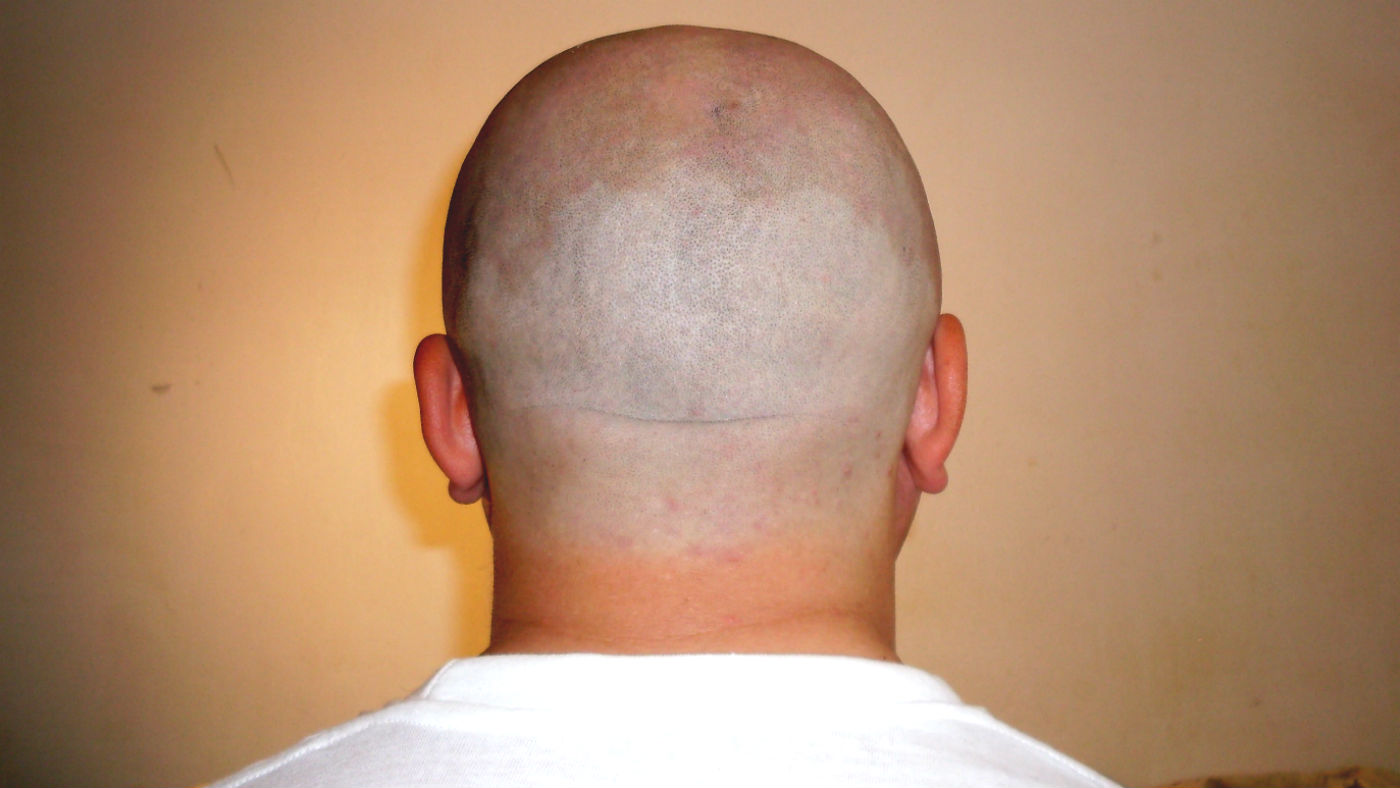Brittle bone drug could unlock cure for baldness
Follicles exposed to WAY-316606 experienced ‘significant’ hair growth in University of Manchester study

A free daily email with the biggest news stories of the day – and the best features from TheWeek.com
You are now subscribed
Your newsletter sign-up was successful
A drug originally developed to fight brittle bone disease could have unlocked a cure for baldness.
Scientists at the University of Manchester say an unintended side effect could form the basis for an effective treatment for pattern baldness, the most common cause of hair loss.
Researchers started out by examining Cyclosporine A, a drug used to treat cancer and autoimmune disease which is known to cause some patients to experience excessive hair growth.
The Week
Escape your echo chamber. Get the facts behind the news, plus analysis from multiple perspectives.

Sign up for The Week's Free Newsletters
From our morning news briefing to a weekly Good News Newsletter, get the best of The Week delivered directly to your inbox.
From our morning news briefing to a weekly Good News Newsletter, get the best of The Week delivered directly to your inbox.
They pinpointed a compound in the drug which suppresses a protein associated with preventing hair growth. However, the drug’s other powerful side effects make it unsuitable for use in treating hair loss.
“After some detective work, Dr Hawkshaw found that a compound originally developed to treat osteoporosis, called WAY-316606, targets the same mechanism,” HuffPost reports.
The drug “had never even been considered in a hair loss context”, according to lead scientist Dr Nathan Hawkshaw said, but tests showed it had a “dramatic stimulatory effect” on hair growth.
Follicles donated by 40 male hair transplant patients experienced “significant increase” in growth just two days after being treated with WAY-316606, according to the study, published in the journal PLOS Biology.
A free daily email with the biggest news stories of the day – and the best features from TheWeek.com
Male pattern baldness affects around half of all men by the age of 50 and usually manifests as a receding hairline and/or hair, whereas the less common female pattern baldness usually takes the form of thinning hair.
Minoxidil and finasteride are currently the only drugs prescribed to treat pattern baldness “but both have side effects and often produce disappointing results”, says The Daily Telegraph. Neither are available on the NHS.
Clinical trials on human patients will be needed to establish whether the drug could be a safe and effective treatment for baldness, but Hawkshaw says the team is excited by the potential.
“It could one day make a real difference to people who suffer from hair loss,” he said.
-
 Political cartoons for February 16
Political cartoons for February 16Cartoons Monday’s political cartoons include President's Day, a valentine from the Epstein files, and more
-
 Regent Hong Kong: a tranquil haven with a prime waterfront spot
Regent Hong Kong: a tranquil haven with a prime waterfront spotThe Week Recommends The trendy hotel recently underwent an extensive two-year revamp
-
 The problem with diagnosing profound autism
The problem with diagnosing profound autismThe Explainer Experts are reconsidering the idea of autism as a spectrum, which could impact diagnoses and policy making for the condition